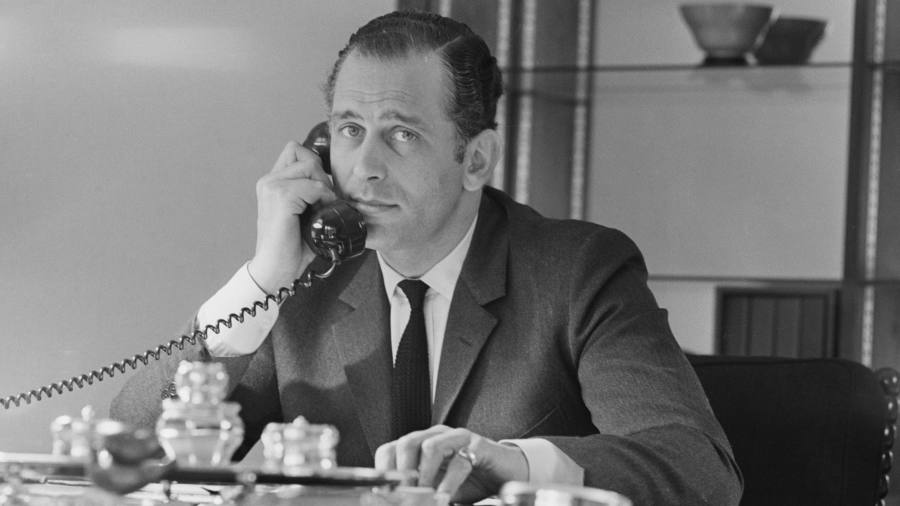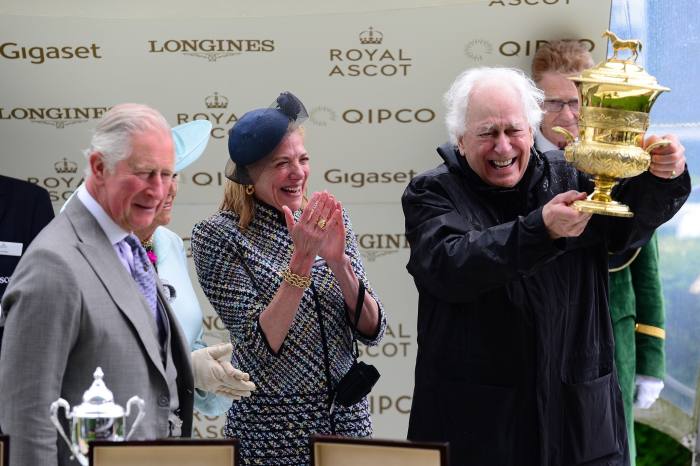
A senior colleague at NM Rothschild & Sons once issued the definitive judgment on the leadership style of Sir Evelyn de Rothschild, dynast, financier, philanthropist and owner and breeder of racehorses, who has died aged 91.
“You ask yourself, ‘Would Evelyn want this?’,” the colleague told the Financial Times in 1988, “and if the answer was no you didn’t do it.”
When it came to questions over the future of NM Rothschild, which Evelyn de Rothschild chaired for 27 years until 2003, the answer was often no. As a result, “his legacy is the survival of the bank”, according to one City grandee.
Rothschild’s intransigence over the destiny of NM Rothschild led to an irreparable rift with his more entrepreneurial cousin Jacob, now the fourth Baron Rothschild, but his cautious approach helped secure the bank’s independence through the “Big Bang” deregulation of 1986 and the subsequent wave of takeovers.
Yet Rothschild was never “a banker by instinct”, the same City figure believes. Instead, he pursued a career in banking out of a “sense of family responsibility”, acting as custodian for a firm that could trace its roots in the UK back to 1798, when his great-great-grandfather Nathan Mayer Rothschild came from Frankfurt and set up as a textile merchant in Manchester. The bank was founded 11 years later.
Bank clients and staff valued stability, Rothschild told the FT on the 200th anniversary of Nathan Mayer’s arrival in the UK. Mergers “sound good, maybe, by financial criteria, but once you get to the human side, the clients want to feel that they are dealing with the same person — that there is stability in relationships.”
Evelyn Robert Adrian de Rothschild was born in London in 1931 into two great European Jewish financial dynasties, son of Anthony de Rothschild and Yvonne de Rothschild (née Cahen d’Anvers), part of the Bischoffsheim banking family. He was educated at Harrow, a private school, and Trinity College, Cambridge, though he left before completing his degree.
Born into great wealth, he had a passion for polo, horseracing and chocolate (which he indulged in later life by setting up a luxury chocolatier in London). When his father retired as chair of NM Rothschild in 1961, though, Evelyn devoted himself to the bank. “The family needed him, so he did it rather than pursue his dream of spending the rest of his life on the back of a horse,” his third wife, the American entrepreneur Lynn Forester de Rothschild, joked to the FT in 2017.

Throughout his banking career, Rothschild hoped to unite the diverse family interests in Europe, but he resisted his younger cousin Jacob’s desire to enlarge NM Rothschild by pursuing ambitious deals. The ensuing power struggle boiled up into acrimony in the 1970s. According to one family history, staff gossiped that Evelyn would not use the fourth-floor toilets at the bank’s historic City headquarters “for fear of encountering Jacob, whose office was just along the corridor”.
As the major shareholder, Evelyn was always likely to emerge as the winner in any test of strength, however. Jacob left in 1980, barely on speaking terms with his cousin, to run his own investment business, which later demerged into RIT Capital Partners and St James’s Place Capital. Meanwhile, the bank that Evelyn continued to lead became a force in advisory work, helping Margaret Thatcher’s government to privatise BT and other state-owned assets in the 1980s, and pursuing, in contrast to the big US-dominated investment banking conglomerates, a “capital light” approach.
Rothschild was also happy to use the UK bank’s deep history to forge new ties. He cited the bank’s 150-year history of doing business in China when NM Rothschild formed a pact with Industrial and Commercial Bank of China to offer financial advice in 1996, making it one of the first western banks to enter such an agreement as the mainland opened up to foreign investment. According to Rothschild’s family, during his tenure as chair, NM Rothschild’s total assets grew from £40mn to £4.6bn.
Rothschild never lacked for investment board and networking opportunities. In 1989, he was knighted for services to banking and finance by Queen Elizabeth II, for whom he had acted as financial adviser. From 1977 to 1994 he was chair of United Racecourses, which owned the Epsom and Sandown courses where the horses he owned and bred often ran. He chaired the holding company that owned The Economist magazine from 1972 to 1989. EL Rothschild, the family investment office established with his wife, retains a stake in the media group.
In later life, he also devoted increasing energy to philanthropic causes, including Elephant Family, a charity working to preserve wildlife across India, Thailand, Myanmar, Cambodia, Sumatra and Borneo, and the Eranda Rothschild Foundation, which works in medical research, education and the arts. He was also a prominent figure on the London social circuit. He and his wife were close friends of Bill and Hillary Clinton.
Rothschild divorced his first wife, the model Jeanette Bishop, in 1971, after five years. He had three children with his second wife, Victoria Schott, to whom he was married from 1973 to 2000, after which he married Lynn Forester, who has two children by a previous marriage.
NM Rothschild is now part of Rothschild & Co, which brings together many of the dynasty’s French and UK financial services interests. It is one of the only pre-Big Bang independent City banks still standing, endorsing Rothschild’s proud declaration to The Economist in 1996: “We’re the last of the Mohicans.”